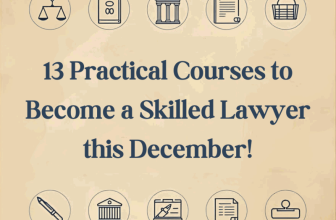
Skip this if the idea of starting your own practice and growing as a litigator doesn’t keep you up at night!
But if it does, you’re in the right place!
These 45 live sessions led by litigation experts, will empower you with the right research and drafting skills to practice in both the civil and criminal side!
You will also get an opportunity to connect with experienced civil and criminal advocates who will guide you in starting your own practice and train you to handle new cases and grow your practice!
Whether you are a 1st generation lawyer who’s interested in starting an independent practice or someone who comes from a family of lawyers and is looking to expand their practice, you’ll find this course of value.
The course begins with a live ‘Orientation Session,’ which explains how to benefit from it fully. For the detailed month-wise structure and schedule, please click here.
Click here to register for the 6-Months Expert Level Course on Mastering Litigation and Becoming An Independent Litigator: Rs. 50,000/- 21,900/-
About the 6-Month Expert-Level Course on ‘Mastering Litigation and Becoming An Independent Litigator’
This course is designed to make your journey of becoming an independent litigator comfortable and highly rewarding for you!
By the end of this course, you will master the essential research and drafting techniques for civil and criminal litigation while also learning the step-by-step process for setting up your own chamber, attracting and acquiring clients, expanding your practice, and maintaining a strong client base.
In addition to technical skills, the course offers monthly sessions on argumentation techniques to sharpen your courtroom presence. These sessions, led by experienced litigators, will teach you how to present your case persuasively and effectively!
So, what is holding you back?
Take control of your career now!
The value of the offerings in this course is Rs. 50,000.
The introductory price of this course is Rs. 21,900.
Click here to register for the 6-Months Expert Level Course on Mastering Litigation and Becoming An Independent Litigator: Rs. 50,000/- 21,900/-
About Lawctopus Law School
Lawctopus Law School has taught a wide range of practical skills to over 20,000+ law students, young lawyers, professionals, academicians, and business people. Over 1000 students have rated our courses and the average rating is 93/100. Our online courses are ‘warm’ learning experiences!
At LLS, our courses are developed by subject matter experts (practitioners and academicians) and these courses are a mix of
How will this course help you?
- Law students will gain the skills to excel in litigation internships and understand the career path to follow after graduation.
- Litigating lawyers with 0-6 years of experience will learn how to establish and sustain their independent practice.
- Master the drafting of essential documents for successful civil and criminal practice.
- Improve your argumentation skills, enabling you to present your cases more effectively in court.
- Learn to network more efficiently within the legal community.
- This course will save you 3-5 years of your legal career by teaching you in just six months what typically takes that long for a lawyer to learn to become independent. We will guide you through every step, filling the knowledge gap and ensuring you grasp the basics while gaining ample experience in understanding court procedures and drafting!
- You’ll learn the procedure and drafting of essential documents required in civil and criminal litigation, including drafting of legal notices, plaints, written statements, evidence affidavits, FIRs, complaints, charge sheets, bail applications, appeals, writs, PILs, and much more!
Live Sessions of this Course
The course begins with a live ‘Orientation Session,’ which explains how to fully benefit from it.
For the detailed month-wise structure and schedule, please click here (The PDF version of this doc is added below).
Click here to register for the 6-Months Expert Level Course on Mastering Litigation and Becoming An Independent Litigator: Rs. 50,000/- 21,900/-
Structure of this Course
Month 1 – Introduction to Litigation Basics
Module 1 – Introduction
- Level of preparedness of an Advocate in a Courtroom
- Arrangement of case files
Module 2 – Courtroom 101
- Basics of functioning of a Courtroom
- Various stages of court proceedings (both civil and criminal cases)
- The right nomenclature to be used for parties in litigation
- Usage of the E-Courts Websites to check case status, previous orders, cause lists
Module 3 – Introduction to Case Files
- How to prepare before creating court briefs
- Delve deeper into case files by discerning their arrangement
- Difference between a Lawyer’s case file & a Judge’s case file; reading them properly
- Meaning of notes/briefs, their utility, relevance, and significance to a lawyer
Module 4 – Sample Templates and Repository
- Comprehensively go through various kinds of briefs/notes that can be prepared
- Learn from various sample templates
- Get access to an indicative checklist to help you review your brief, once created
- Know the do’s and don’ts of making a case brief
Add-on Modules
- Reading resource of Lawctopus Law School’s Course on Drafting Bail Applications
- Career Aid webinars on CV making, LinkedIn profile building, and career options in the legal field
Month 2 & 3 – Civil Proceedings and Drafting
Module 5: Introduction to Civil Procedure Civil Drafting for Initiation of a Civil Suit
- Introduction to Civil Drafting and Civil Procedure
Module 6: Court Machinery and Steps Involved in Civil Litigation
- Where and how to file a suit?
- How to authorize your representatives?
- Nomenclature of different petitions
- Stages of civil proceedings (steps involved)
- Sample Vakalatnama
Module 7: Drafting of Legal Notices
- What is a legal notice? Types of legal notices
- How to draft a legal notice and reply to legal notices?
- Modes of service of legal notices
- Sample legal notice and reply to a legal notice
Module 8: Drafting of Plaint
- Rules and guidelines for drafting a plaint
- How to draft a plaint? (Screen-share video with sample plaint)
- Rejection of plaint
Module 9: Drafting of Written Statement
- Introduction to drafting of a written statement
- Rules for drafting a written statement
- How to draft a written statement? (Screen-share video with sample written statement)
- Set off and counterclaim
Module 10: Drafting of Evidence Affidavit
- Rules for drafting an evidence affidavit
- How to draft an evidence affidavit? (share screen video with sample evidence affidavit)
- Affidavit under Section 65B for certification of Electronic Evidence
Module 11: Drafting of Interlocutory Applications
- Introduction to Drafting of Interlocutory Applications
- How to draft Interlocutory Applications? (share screen video with sample application)
Module 12: Analysis and Comparison of 3 Civil Drafts
- How to draft a Recovery of Debt Application,
- How to draft a Complaint under the Negotiable Instruments Act
- How to draft a Statement of Claim in an Arbitration
Module 13: Finding Case Law(s)
- What is a case law? How and where to start the search for caselaws!
- Where and how to find case laws: Manupatra, SCC Online, Indian Kanoon
- Commentaries to find landmark judgements
- Situation/fact related cases
Module 14: Reading Case Law(s)
- The importance of Caselaws
- Case reading (what and how much to read)
- Identifying the ratio decidendi; Ratio v. Obiter dicta
- Identifying the majority judgment; Relevance of minority/dissenting opinion
Module 15: Developing a Case Summary from a Case Law
- Effectively reading case-laws: The art of speed reading
- Summarizing case laws
- Reading summary: credibility and reliability
- Relevance of case summary
- Relevant tips to optimize your case summary
Module 16: Case Comment & Case Analysis
- Case Comment v. Case Summary
- How to go about it?
- The IRAC method
Month 4 & 5 – Criminal Proceedings and Drafting
Module 17: Introduction to Criminal Procedure and Drafting
- Introduction to Criminal Procedure and Drafting
- Compoundable and Non-Compoundable Offences
- Stages of Criminal Proceedings
- Hierarchy of Criminal Courts (Practical Screen-share Video)
- Cognizable and Non-Cognizable Offences
- Authorities and the role of police authorities in the investigation of a case
Module 18: FIRs and Police Complaints
- Introduction and lodging of an FIR. What does an FIR look like? (Practical Screen-share Video)
- How to lodge an FIR online? (Practical Screen-share Video)
- How to search for an already registered FIR? (Practical screen-share Video)
- How to draft a police complaint addressed to the SHO if the Police refuses to lodge an FIR? (Practical screen-share Video)
Module 19 of the Criminal Drafting Course: Quashing of FIRs
- Introduction to the Quashing of an FIR
- How to draft and file a Quashing Petition? (Practical Screen-share Video)
Module 20: Criminal Complaints and Applications [Practical Screen-share Videos]
- Legal Notice and Complaint u/s. 138 of the NI Act
- Introduction to Complaints; Difference between an FIR and a Complaint
- Drafting an Application under Section 156(3) of Cr.P.C?
- Drafting an Application under section 125 of Cr. P.C?
- Drafting a Complaint under Section 12 of the Domestic Violence Act?
- Drafting Applications under Sections 256 and 317 of Cr. P.C?
- Parole and Furlough + How to draft an Application for Parole & Furlough?
Module 21: All about Bails
- Introduction to Bail, Anticipatory Bail and Bail Applications. How to draft and file a Bail Application? (Practical Screen-share Video)
- How to draft and file an Anticipatory Bail Application? (Practical Screen-share Video)
- Granting and Rejection of Bail
- What is a bail bond and how is it filed in court? (Practical Screen-share Video)
Module 22: Pre-trial – Charge, Discharge, Protest Petition
- Pre-trial process
- Charge and charge-sheet. Discharge and Acquittal
- How to draft a Discharge Application? (Practical Screen-share Video)
- How to draft a Protest Petition? (Practical Screen-share Video)
Module 23: Trial
- Procedure before Court. Stages of trial
- What is a chargesheet and how to read it? (Practical Screen-share Video)
- Framing of Charges
- Evidence in the trial process: Examination, Cross Examination, Burden of Proof
Module 24: Appeal, Revision and SLP [Practical Screen-share videos]
- How to draft an Appeal?
- How to draft a Revision Application?
- How to draft a Special Leave Petition?
Module 25: Short Modules
- Arrest and Preventive Detention
- Warrants & Search Warrants
- Remand/Types of Custody
- Difference between Summons Case & Warrants Case
- Magistrate & Session trial
- Plea Bargaining
- Compounding
- Parole & Furlough
- Cyber Complaint
Module 26: Case Laws and Terminologies
- Compilation of all important case laws in criminal law
- Compilation of common terminologies used in criminal law
- Compilation of sample drafts of all complaints and applications
Month 6 – Writs & PILs
Module 27: Introduction to Writs and Writ Petitions
- What are writs and types of writs?
- What is combination of writs?
- What are Writ Petitions and how are they different from civil suits?
- Process of drafting and filing Writ Petitions in Courts
- Types of reliefs sought in Writ Petitions (Prayer clauses)
Module 28: Drafting of Writ Petitions [Practical screen-share video with sample draft]
- How to draft a Writ Petition under Article 32 of the Constitution of India?
- How to draft a Writ Petition under Article 226 of the Constitution of India in various High Courts?
Module 29: Judicial Review, Res Judicata, and other concepts
- Everything to know about Judicial Review & Res Judicata
- Can contractual matters be adjudicated in writ proceedings?
- Challenges to vires of Statutes & Constitutional Amendments
- Principle of Alternate Remedy
Module 30: Landmark cases on Writs + 5 Sample Drafts
Module 31: PIL
- What is a PIL? History of PIL. What is the process of filing a PIL?
- Constitution of India, Supreme Court and Various High Court Rules and Guidelines w.r.t PIL
- How to draft a Public Interest Litigation (Practical share-screen video with sample draft)
- Landmark cases on PIL + 3 Sample Drafts
Click here to register for the 6-Months Expert Level Course on Mastering Litigation and Becoming An Independent Litigator: Rs. 50,000/- 21,900/-
7 Unique Elements of the Online Course
- This course is your roadmap to a thriving legal career, offering actionable strategies to win cases, attract clients, and build a reputable practice. No mysterious theory, just proven techniques and advice that get results in the courtroom and beyond
- Practical and detailed reading resources that you can actually use! Say goodbye to theoretical textbooks and embrace practical guides that equip you with real-world legal skills!
- Participate in 44 live sessions where expert advocates will train you to draft essential documents and navigate civil and criminal legal procedures, equipping you with skills that set you apart in the courtroom!
- Watch and learn from seasoned practitioners through in-depth recorded lectures, gaining their invaluable expertise to enrich your knowledge bank
- Be ready to step up your courtroom game with monthly argumentation skills workshops, mastering persuasive arguments, presentation techniques, good body language, and leaving a lasting impression every time you speak.
- You will attend monthly training sessions, led by experienced advocates, which will help you establish your own practice, attract clients, and sustain a successful legal career with confidence, while also assisting established lawyers in gaining more clients and advancing their practice.
- Complete 9 practical assignments that mirror real-life legal challenges. Receive personalized feedback from our expert faculty, designed to help you sharpen your skills and level up your litigation game.
Click here to register for the 6-Months Expert Level Course on Mastering Litigation and Becoming An Independent Litigator: Rs. 50,000/- 21,900/-
Who can enrol for this course?
- Law students
- Young lawyers wanting to start their independent practice
- Independent litigators wanting to grow their practice
- Academicians
- Anyone interested in litigation
Course Developers and Faculty of this Course
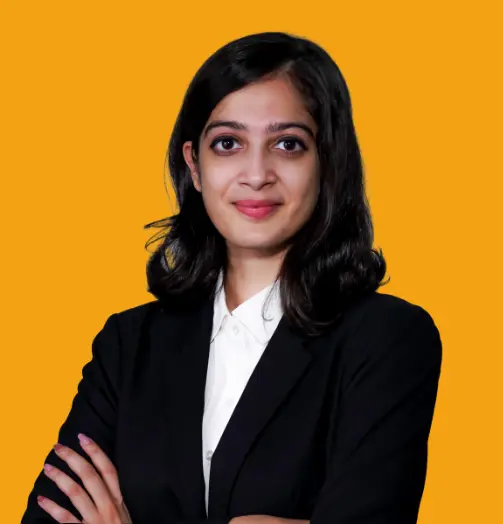
Mrs. Akanksha Mishra is an independent litigator, practicing at the Bombay High Court, Nagpur Bench. She has handled a variety of matters in the field of real estate, arbitration, intellectual property, civil and commercial litigation.
Akanksha has also been the Corporate Counsel for PSUs and Startup Companies where she has worked on diverse facets of legal transactions including drafting of Agreements, conducting due diligence, etc. She is also the president of an NGO working for the transformation of Government Schools.
Presently, Akanksha is working as the Head of Lawctopus Law School and is passionate about teaching with rigour and care.

Vikhyat Oberoi: Vikhyat is a 2017 graduate of School of Law, Christ University. An expert mooter in his college years, Vikhyat now has 4 years of litigation experience.
He has worked in the chambers of Senior Advocate Pramod Kumar Dubey & Senior Advocate Vivek Chib previously. He is now practicing as an independent advocate in the Delhi HC & district courts, in both criminal and civil fields and is also the main faculty for the course.
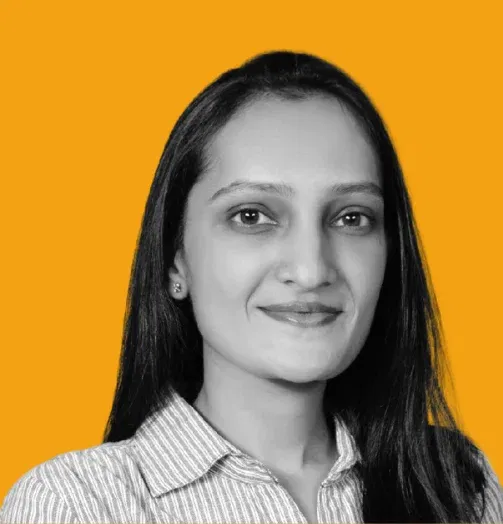
Harshita Agarwal: Harshita is the Lead Faculty for this course and is currently working at Link Legal. She graduated from the University of Petroleum & Energy Studies (UPES) and has been practising in Delhi since then.
She has a rich experience working on cases ranging from insolvency to arbitration. While supervising interns/junior at law firms she witnessed the gap between the practical nuances of law & education imparted at colleges and therefore decided to develop a course to help fill the void.

Sanya Arora: Sanya is the Lead Researcher and Writer of this course and was responsible for the conceptualizing of this course.
She completed her LLB (3 years) from the Department of Laws, Panjab University, Chandigarh in 2018.
She has experience in Civil & Commercial Litigation, IPR, Consumer, Arbitration etc., and has practised in courts across Delhi/NCR.

Javedur Rahman: Javedur Rahman is an Advocate-on-Record (AoR) of the Supreme Court of India. He started his practise right after graduating from NUJS, Kolkata, in 2013.
Though based out of Delhi, he has appeared before many High Courts across the country including Gauhati, Punjab & Haryana, Karnataka, Uttarakhand, Bombay, Delhi as well as Rajasthan.
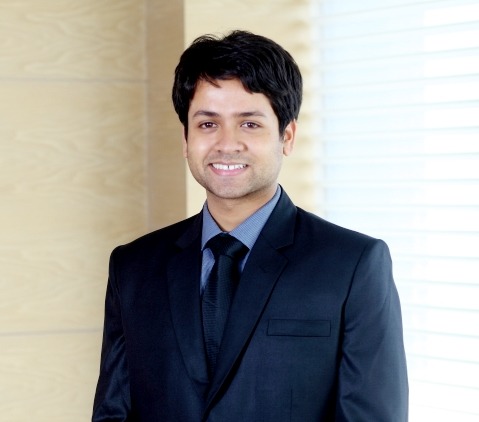
Mr. Gourav Mohanty is an advocate primarily practicing in Bombay before the Hon’ble Bombay High Court as well as courts/tribunals in other parts of the country.
Before being an independent practitioner, he worked as a Senior Associate in the Dispute Resolution Team of Shardul Amarchand Mangaldas & Co.
Gourav graduated from Symbiosis Law School, Pune, 2016. While in law school, Gourav received the Gold Medal for being Academic Topper, DAAD-Germany Scholarship and the Chancellor’s Award for Best Outgoing Student.

Mr. Tushar Giri is currently a practising advocate at the High Court of Delhi as well as the Supreme Court.
He is also a founding partner of ‘Kalp Law’, a dispute resolution law firm based in Delhi which has associate offices in Bangalore, Chandigarh, and Shimla.
His practice area encompasses all kinds of litigation matters.
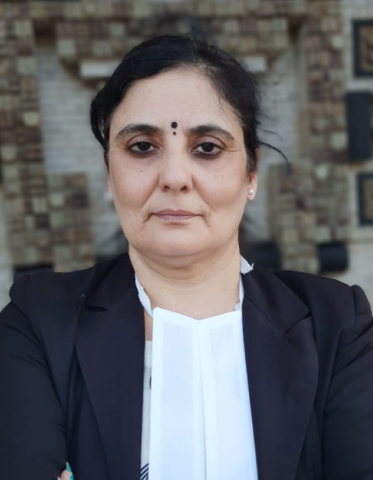
Ms. Bela Khattar is a seasoned legal practitioner with an experience of over 25 years handling diverse legal matters and primarily focusing on Criminal Litigation in Delhi and adjoining areas.
She has a notable track record of handling a wide range of legal cases, including those related to POCSO, DV Act, MTP Act, NIA, and IPC, among others, before the Honorable High Court of Delhi, the Honorable Supreme Court of India, and various district courts and tribunals across different states.
Additionally, she has contributed her legal expertise as an Additional Standing Counsel for the Central Administrative Tribunal (CAT) for a duration of three years.

Adv. Jaibatruka Mohanta is a practicing Advocate before the Courts at Karnataka and other Courts across India.
In addition to this, he is a Research Associate at the Centre for Environmental Law, Education, Research and Advocacy (CEERA), National Law School of India University (NLSIU) to delve into cutting-edge research, policy formulation, and capacity-building programmes for the government of India.
He, along with his team, advises the Government of India on matters of Criminal Law reforms and is involved with various groups to strengthen the criminal procedure in India.

Ms. Samiksha Singh is practicing as a Criminal Litigator and has an experience of over 4 years.
She has worked extensively in the field having worked on multiple high-profile cases with distinguished luminaries of law such as Adv. Satish Maneshinde, Adv. Yug M. Chaudhry & Adv. Faisal Rizvi.
Samiksha graduated from HNLU, Raipur with Specialisation Honours in Criminal Laws in 2019 and then completed her post-graduation in Criminal Law.
She is currently pursuing her Ph.D. in Criminal Law and is also a qualified PoSH Specialist.
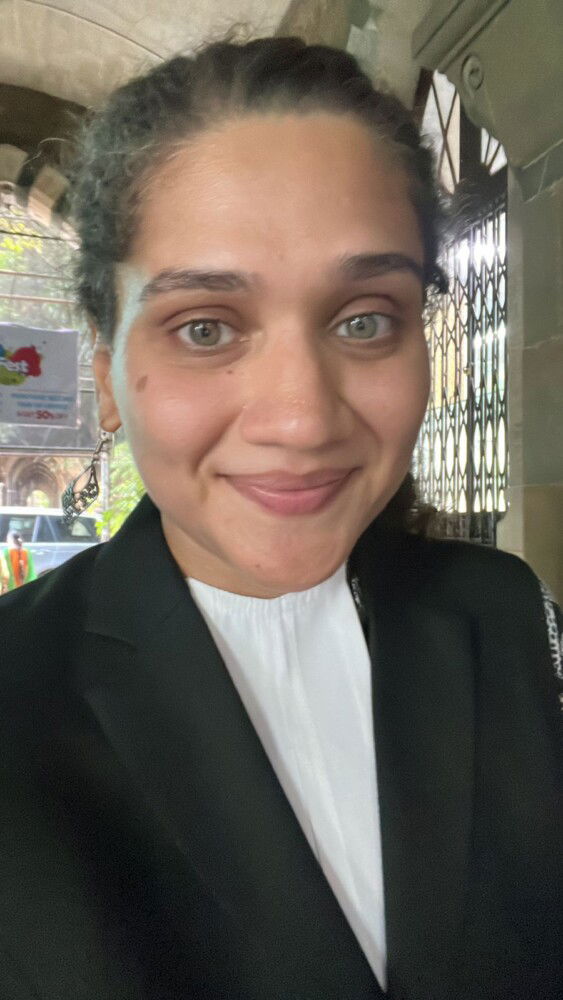
Anandini Fernandes is an established Criminal Lawyer practising in Mumbai.
She has been associated with the Chambers of Adv. Satish Maneshinde from the beginning of her journey along with taking up her cases independently.
Anandini also became the first woman to officiate as an anti-corruption manager at the ICC World Cup.
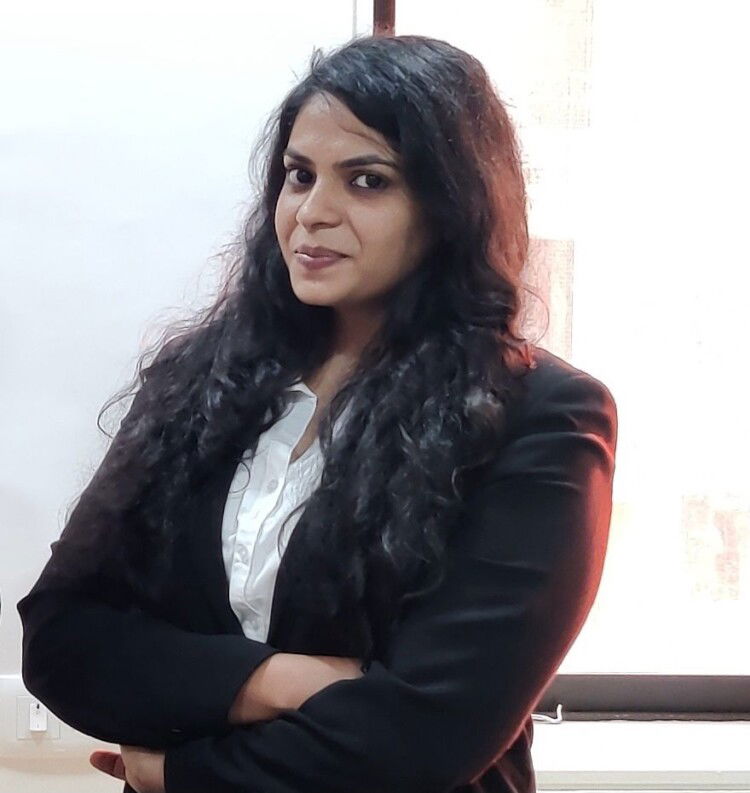
Lakshmi Raman graduated from Symbiosis Law School, Pune and has been practicing since 2013.
Her area of specialisation includes a diverse spectrum of criminal cases including bodily injury, sexual assault, POCSO trials, fraud, corruption, cheating, defamation, white-collar crimes, economic offences, money laundering and cheque-bouncing cases.
Lakshmi has been rightfully recognised in the coveted lists of “India’s Future Legal Leaders – 50 Lawyers Poised for Further Success” by the IBLJ in the year 2022.
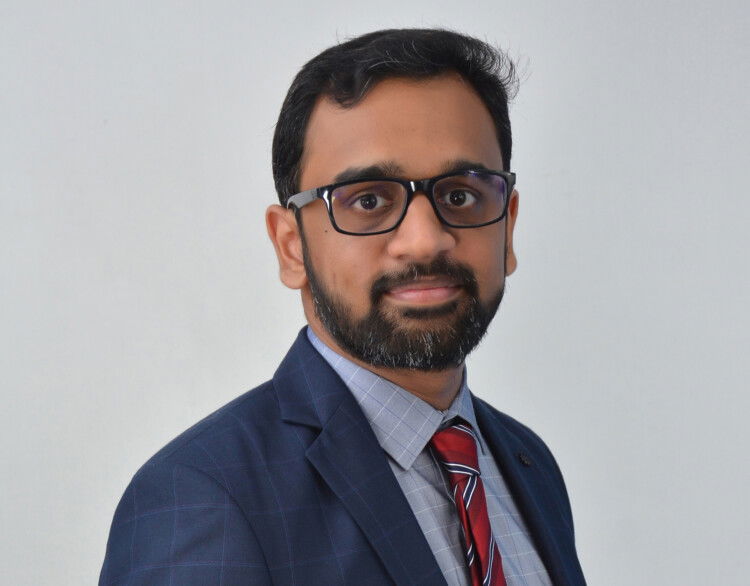
Mr. Mukund Unny Qualified as an Advocate-on-Record at the Supreme Court of India and enrolled with the Bar
Council of Kerala, Mukund Unny has over 8 years of experience, focusing on civil, commercial, and constitutional litigation at the Supreme Court and various New Delhi courts and tribunals.
Mukund also regularly contributes columns on law and constitutional matters to leading national dailies like The Hindu and The Indian Express, and legal portal Livelaw.

Animesh Singh graduated from Symbiosis Law School, Pune, in 2009. Following a successful tenure as an Associate at Amarchand Mangaldas & Suresh A. Shroff & Co., New Delhi, he co-founded his own firm, A&S Law Chamber and Consultants, in Bhubaneshwar.
Since 2018, he has been practicing independently. His areas of expertise encompass conducting litigation, conveyancing, drafting pleadings, presiding over court hearings, arbitrations, client conferencing/consultation, legal research, providing legal opinions, and conducting fact-finding investigations/due diligence on both civil and criminal matters.
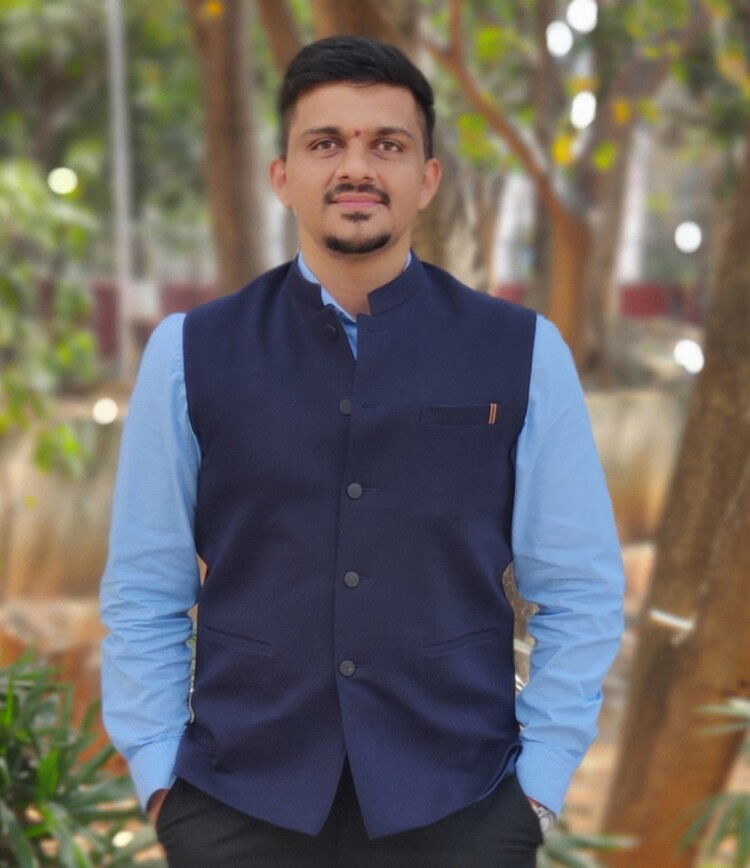
Adv Raghava Parthasarathy practices law in the High Court, Civil Courts, and other Tribunals in Bengaluru, Karnataka. He is concurrently pursuing a Ph.D. from Gujarat National Law University.
In the early stages of his career, he worked as a Judicial and Law Clerk at the High Court of Karnataka.
His areas of expertise include Petroleum and Energy laws, Contracts and Real estate Laws, Electricity Laws, and Environment Laws, among others. With a keen interest in academia and research, he boasts several publications to his credit.

Ankit Kaushik is an Assistant Professor of Legal RGNUL, Punjab. He is a graduate of NLU, Jodhpur, and a postgraduate from NLU, Delhi.
He has led the research team on the IPC as a Research Associate with the Committee for Reforms in Criminal Laws established by the Ministry of Home Affairs, Government of India.
In 2021, Mr. Kaushik was awarded the Director Generals’ Commendation Certificate by the Bureau of Police Research and Development for his contribution in the form of a Research Project on “Use of Community Policing Mechanisms for Mitigation of Radicalisation and Evolving Effective Mechanisms for De-radicalisation.”

Samanvi Narang is associated with JGLS Sonepat as Assistant Lecturer. Her areas of specialisation include International Trade Law, Human Rights Law, International Investment Law and Corporate and Commercial Laws.
Ms. Narang received International Council for Justice Award for Outstanding performance in Extra-curricular Activities.
Ms. Samanvi also holds a Diploma in International Investment Law from QueenMary University, London.
She is currently pursuing her Ph.D. from NALSAR University of Law, Hyderabad in the area of International Investment Arbitration.

Gajendra Khichi is an NLU Jodhpur alumnus and legal practitioner having expertise of 7 years, before the Supreme Court of India, the High Courts of Delhi & Rajasthan, as well as various District Courts and Tribunals in Delhi.
He is a skilled counsel who has experience in intellectual property law, arbitration, data protection, commercial dispute resolution, regulatory compliance, insolvency, real estate, media & entertainment, and competition laws.
Click here to register for the 6-Months Expert Level Course on Mastering Litigation and Becoming An Independent Litigator: Rs. 50,000/- 21,900/-
Add-on Benefits
- Completion certificates are issued by Lawctopus Law School after completing the course.
- Merit certificates are awarded to best-performing learners.
- Access to webinars on litigation basis, civil drafting, criminal drafting, etc., are given for free
- LLS alumni groups are available for exclusive internship/job notifications and discounts on courses/workshops.
Click here to register for the 6-Months Expert Level Course on Becoming an Independent Litigator: Rs. 50,000/- 21,900/-
Money Back Guarantee
In case you do the course sincerely and are still dissatisfied with it, we’ll refund you 100% of the money you invested; no questions asked. We are that confident in our course!
What does ‘sincerely’ mean? It means that you attend at least 75% of the live classes and complete the compulsory assignments successfully. If you still don’t think the course was worth the money, we’ll refund the full amount, no questions asked!
Just email us at [email protected] and the refund will be issued within 7-10 working days.
Questions?
If you have any queries regarding the course, please send an email to [email protected] and we will get back to you within 24 hours!
Click here to register for the 6-Months Expert Level Course on Mastering Litigation and Becoming An Independent Litigator: Rs. 50,000/- 21,900/-
Disclaimer: Charging money from students for internships or from job applicants is an unethical practice and can lead to blacklisting. Facing concerns? Please email us at [email protected]






